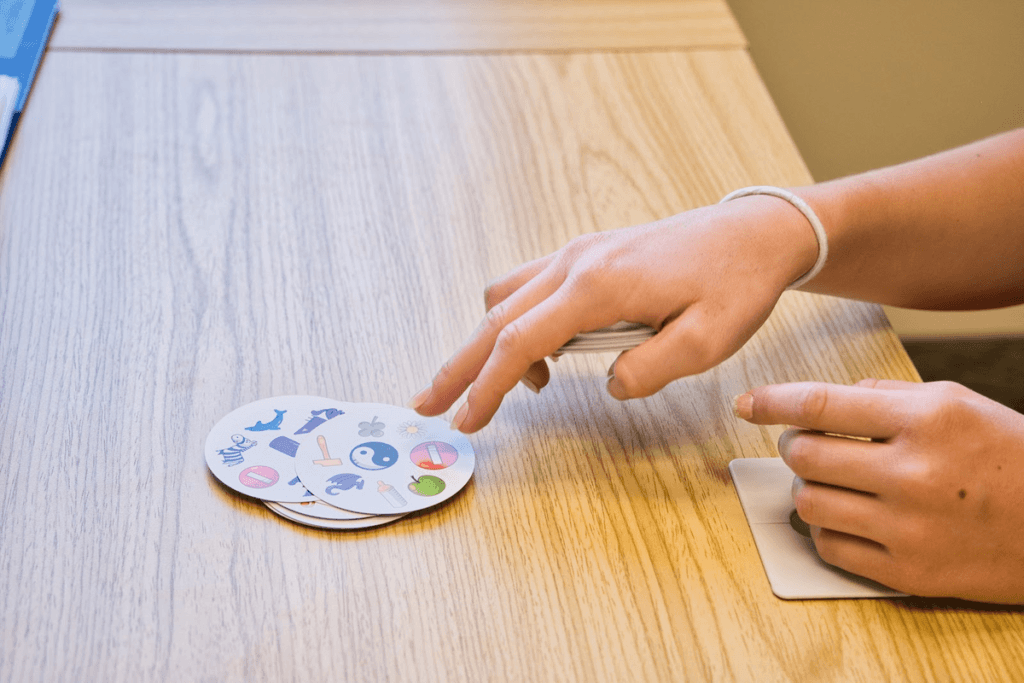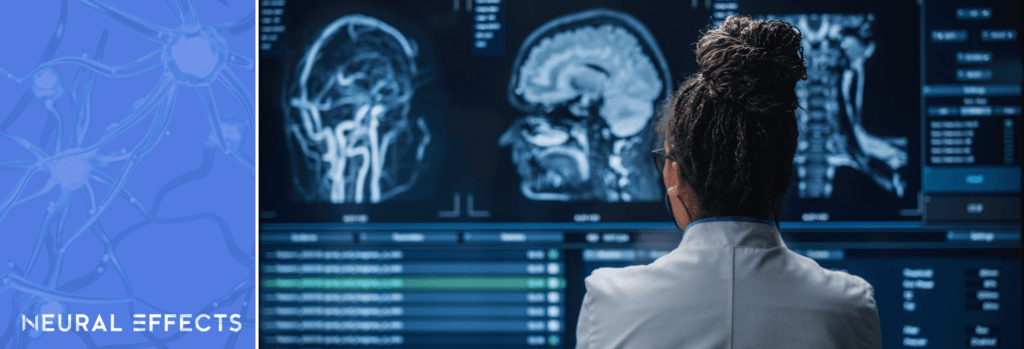Because dementia is a progressive disease, patients and their loved ones look for ways to slow down the decline as much as possible. While sometimes that means being proactive about choosing medication and healthier lifestyles, other times that means actively avoiding what could hasten the decline.
At our dementia treatment clinic, we’re frequently asked questions about what can make dementia symptoms worse. We’ll answer the 13 most commonly asked questions about what makes dementia worse, and we’ll also explain our proactive approach to helping dementia patients.
Our therapists use a combination of aerobic exercise and cognitive therapy to help dementia patients maintain (or in the case of some patients with mild cognitive impairment, improve) cognitive function and stay independent for as long as possible.
Here’s the full list of the questions we answer in this post:
- Can medication use make dementia worse?
- Can foods like sugar and processed meat make dementia worse?
- Can alcohol make dementia worse?
- Does dementia get worse at night?
- Can anesthesia make dementia worse?
- Can moving to a different home make dementia worse?
- Can flying make dementia worse?
- Can stress make dementia worse?
- Can a fall make dementia worse?
- Can anxiety and depression make dementia worse?
- Can isolation make dementia worse?
- Can a sedentary lifestyle and lack of exercise make dementia worse?
- Can problems with blood pressure make dementia worse?
- Can treatment at Neural Effects help dementia patients?
Neural Effects uses the latest evidence-based techniques to diagnose and help dementia patients. We are located in Provo, Utah, and serve anyone in Salt Lake City or the Utah Valley area. We are in network for most types of medical insurance. Schedule your evaluation today.
1. What Medications Make Dementia Worse?

Certain prescription medications may hasten cognitive decline. Discuss the pros and cons of your (or your loved one’s) medications. You may find that the benefit outweighs the risk of faster cognitive decline for some, while others aren’t worth the symptom increase.
Some of the meds that may have a negative impact on dementia patients include:
Benzodiazepines
This class of medication is prescribed to help patients sleep or to address symptoms of depression and anxiety. They boost the effect of GABA receptors, producing a sedative and hypnotic effect. Common benzodiazepines include lorazepam, diazepam, temazepam, and alprazolam (brand names Ativan, Valium, Restoril, and Xanax, respectively).
Benzodiazepines may be helpful for some dementia patients, but they can increase dementia symptoms, including accelerating cognitive decline and increasing the risk of respiratory problems and pneumonia. There is also some evidence suggesting that long-term use of benzodiazepines increases the risk of developing dementia later in life.
Anticholinergics
Anticholinergic drugs include many different types of medication, including over-the-counter and prescription drugs. They work by blocking a neurotransmitter in the brain called acetylcholine.
This means they have the exact opposite effect as a medication used to treat dementia patients called Donepezil, which boosts the activity of acetylcholine. Not only does their extended use increase the risk of developing dementia, but it can also put dementia patients at greater risk of adverse effects, including cognitive decline, predisposition for delirium, and physical symptoms such as dry mouth, constipation, or urinary retention. For patients who need hospital care, the use of anticholinergics can lead to longer hospital stays and increased mortality rates.
Caregivers need to be aware of which drugs are classed as anticholinergic. A list of anticholinergic medications includes:
- Tricyclic antidepressants
- Sedative antihistamines (such as diphenhydramine, known as Benadryl)
- Muscle relaxants
- Some over-the-counter analgesics
- Parkinson’s medication
- Medication for blood pressure
- Bladder relaxants
- Some medications for vertigo, motion sickness, and nausea
Antipsychotics and mood stabilizers
In older patients with dementia, antipsychotics such as quetiapine (Seroquel) and haloperidol are usually prescribed to manage difficult behaviors, such as agitation and aggression. These meds dampen brain function and sedate the patient.
These should be used as a last resort only, since prolonged use increases the risk of stroke and death in dementia patients, and many doctors now advocate against their use because there is “limited evidence of clinically meaningful benefit,” especially compared to the risks of these medications. If there’s a real need for these drugs, they should be used at the minimum needed dose.
Opiate pain medications
Opioids are a broad group of drugs to relieve pain. They work by interacting with opioid receptors in the central nervous system and block the perception of pain. Commonly prescribed opiates include hydrocodone, oxycodone, morphine, codeine, methadone, hydromorphone, fentanyl, and tramadol.
However, they can be dangerous for dementia patients, as opioid use deteriorates cognitive function and increases the risk of fall injuries and fractures. As a result, the 2019 American Geriatric Society suggests caution when using opioids in dementia patients with a history of falls or fractures, especially for nursing home residents.
Steroids
Steroids — also called corticosteroids — are used to treat inflammatory diseases and act as inhibitors for some inflammatory enzymes. Common steroids include prednisolone, beclomethasone, methylprednisolone, and hydrocortisone, to name just a few.
These meds have been implicated in the development of psychiatric symptoms such as depression, insomnia, mania, agitation, delirium, psychosis, and many other behavioral and cognitive changes, which can severely affect the health of dementia patients.
Some patients also manifest dementia-like symptoms after exposure to corticoid medication, often to treat asthma, arthritis, and other inflammatory conditions. This condition is normally reversible — although not always completely — once treatment is stopped.
Beta-Blockers
Beta-blockers are a type of prescription drug used to treat high blood pressure, prevent heart attacks, and control heart rhythm. Commonly used beta-blockers include atenolol, acebutolol, metoprolol, and propranolol.
Patients with moderate or severe dementia could experience a significant cognitive decline from using beta-blockers. Curiously, the use of beta-blockers is also associated with an increased risk of developing vascular dementia, but not Alzheimer’s or mixed dementia.
Is It Safe to Continue Taking Medication?
If you’re noticing that your loved one is deteriorating faster than expected, their medication could be the cause.
- If it’s an over-the-counter drug, it may be better to stop or at least reduce what they’re taking. In some cases, it’s possible to find safer alternatives. For example, allergies can be treated with non-sedating antihistamines like loratadine (brand name Claritin) or with a nasal steroid spray. Talk with your doctor about replacing PM analgesics like Tylenol PM (which contains antihistamines) with the non-PM version, such as acetaminophen (Tylenol).
- If they’re taking an over-the-counter sleeping aid that contains a sedating antihistamine, it may be harder to stop without consequences. Melatonin is an oft-used alternative that is not known to cause further dementia decline. Consider starting with a small dose, such as 0.5 mg, and increase as needed.
- If it’s a prescription drug, don’t stop taking the drug without consulting the prescribing physician or another qualified healthcare provider. We encourage you to discuss the pros and cons of each drug with them, as well as possible alternatives to treat the problem. In some cases, it’s impossible to find alternatives, and patients must continue to take the medication — such as with epilepsy drugs, for example — despite the problems they may cause. Always seek medical advice before changing medication.
Keep in mind that different types of dementia may respond to and require different medications. Watch out for interactions between those medications and the other medications the patient is taking.
Are Common Medications for Dementia Safe?
Medications for dementia, such as memantine, aducanumab, galantamine, rivastigmine, and others, come with their own set of risks and benefits. Read more about them, along with alternative treatments, at these links:
2. Can Foods Like Sugar and Processed Meat Make Dementia Worse?

While some foods can boost memory and improve cognitive skills, others may have the opposite effect and worsen dementia symptoms. Some of these detrimental foods are also linked with other serious health problems, such as high blood pressure or cardiovascular problems, making it even more important to remove them from the diet of a dementia patient.
Foods to avoid include:
- Foods high in trans-fatty acids, such as margarine, frozen pizza, and microwaveable popcorn. There is growing evidence that this type of fat is involved in the development of dementia and can accelerate cognitive decline with age.
- Fried and highly processed foods, including meat and dairy products. Heating food to extreme temperatures leads to the formation of advanced glycation end products (AGEs), which in turn are involved in the buildup of beta-amyloid protein plaques in the brain characteristic of Alzheimer’s disease.
- Sugary products, including drinks and sweets. Studies show that patients eating a diet rich in sugar are at higher risk of developing dementia and experiencing a more rapid cognitive decline.
- Processed meat and cheese, which often contain nitrosamines. In addition to being carcinogenic, nitrosamines cause the liver to produce fats that are toxic to the brain and cause cognitive decline.
From this list, it’s easy to conclude that dementia patients should avoid highly processed sugary and fatty foods. Instead, the best advice is to follow a healthy and balanced diet rich in fruit, vegetables, and nuts. One example is the MIND diet, which was designed specifically to include items that protect cognitive function. Studies show that using this diet results in the equivalent of being 7.5 years younger in age for dementia patients.
3. Can Alcohol Make Dementia Worse?

There isn’t much research on the effect of wine on the early stages of dementia. We don’t know if the occasional glass would cause harm or not. But that also assumes your loved one is not taking any medications that negatively interact with alcohol and that their treating clinician has approved occasional alcoholic beverages.
As the disease progresses, however, the consumption of alcohol can become problematic. Even patients with moderate dementia may not remember how much they drank and may inadvertently drink more than they should without realizing it.
Alcohol consumption has well-documented adverse effects on health, including causing brain damage. Alcohol leads to a reduction in volume in certain areas of the brain, which alters the way the brain functions and accelerates cognitive decline. In addition, elderly patients can’t cope well with alcohol. With age, the liver becomes less able to metabolize alcohol, and the body takes longer to eliminate it.
In this case, the advice is simple: encourage your loved one to avoid alcoholic drinks or at least to drink in moderation.
4. Does Dementia Get Worse at Night?

In many dementia patients, the transition from daytime to nighttime can be difficult. This is known as sundowning, during which patients feel confused, agitated, and anxious. They may tend to yell and argue with family members or decide to rummage through drawers and rooms. Sundowning is typically marked by increased activity and restlessness, but some patients may become quiet and withdrawn.
Researchers are not sure what causes this behavior change, but the most likely explanation is that dementia affects the circadian rhythm in the brain and makes it difficult for patients to differentiate between night and day. This problem is often exacerbated when the clocks change and daylight is suddenly extended or shortened.
The best way to deal with sundowners is to anticipate the behavior change and have a plan to deal with it:
- Schedule doctor appointments and other commitments as early in the day as possible, when the person living with dementia is more alert.
- Encourage a routine with set times to wake up and go to bed.
- Whenever possible, go for a walk with your loved one during the day.
- Identify what triggers this type of behavior and avoid those triggers in the evening.
- Limit stimulation in the evening, including TV or loud music, as these may add to the patient’s confusion.
- Keep the house well-lit enough to provide safety and prevent falls. But try to balance that need with a way for patients to experience the increase and decrease of natural light each day. (Note that light therapy is effective at reducing symptoms of delirium in dementia patients).
- Organize soothing activities in the evening, such as listening to calming music, looking at photographs, or watching a favorite movie.
- Limit or prevent daytime naps.
- Reduce or avoid alcohol and caffeine.
5. Can Anesthesia Make Dementia Worse?

Many carers notice a change in their loved one after surgery, particularly in terms of cognitive problems such as memory loss and difficulty concentrating.
This is known as post-operative delirium and is a common short-term effect of general anesthesia in dementia patients. These patients experience bouts of disorientation and confusion that come and go for several days after surgery. Patients may also experience memory problems and may present emotional issues such as hallucinations, paranoia, anxiety, agitation, and depression.
Some patients experience changes in cognition and memory that last weeks or months after surgery. This is called postoperative cognitive dysfunction (POCD), and it can be severe for senior patients who have received general anesthesia. Inevitably, for patients with dementia, this aggravates symptoms and accelerates the progression of the disease.
Researchers don’t yet know the exact mechanisms to explain these symptoms. Some studies suggest that anesthetics increase the levels of beta-amyloid and tau proteins in the brain and cause damage to nerve cells, but others found no evidence to support these claims. It’s also possible that some types of general anesthetics lead to an exaggerated inflammatory response and affect brain function.
When surgery is unavoidable, it’s important to make sure the surgeon and the anesthesiologist are aware that the patient has dementia. This will help them choose the best anesthetic for surgery and allows the team to monitor for postoperative delirium and treat it as soon as possible to limit further cognitive decline.
Whenever possible, doctors should use local rather than general anesthesia for patients with dementia. Regional anesthesia can be a safe and effective alternative to general anesthesia for many surgeries. Recovery time, pain, and side effects are all lower with regional types of anesthesia, such as epidurals, nerve blocks, and spinal anesthesia. However, this approach isn’t always possible, and complex operations need general anesthesia.
If the patient needs general anesthesia, they often require lower doses than patients who don’t have dementia. This is because patients with dementia can be very sensitive to medication, and it will take them longer to eliminate these chemicals from the body.
6. Can Moving Make Dementia Worse?

After a dementia diagnosis, many families think about moving when planning for the future. You might look for a home with more easily accessible rooms, something closer to the hospital, or a place in a care facility.
However, relocation can be a complex process for dementia patients, often leading to trauma known as relocation stress. Relocating may cause confusion, anxiety, depression, and withdrawal. It’s not uncommon for the patient’s behavior to become out of character until they get used to the new home.
Patients also struggle to find their way around the house; their brain is already affected by the disease, so mapping a new location is complex and may take some time. Sadly, this often means increased mortality rates after moving, especially in patients with severe dementia.
Patients in the early stages of the disease may find it easier to adapt to a new home, particularly if they feel involved in the decision-making process to relocate. This increases the quality of life and reduces stress.
If you are planning to move to a new home or your loved one is going to a care facility, consider the following:
- Keep the new home as familiar as possible by using furniture or decorations from the old house. This could also include painting the front door to match the old one to make it more easily recognizable.
- Use nightlights to help the patient find their way through the home at night.
- If possible, allow the patient to visit the new location several times before moving.
Be patient; it may take them some time to adjust to daily life in their new home.
Read: Early Signs of Dementia
7. Can Flying Make Dementia Worse?

Flying can be distracting, overwhelming, and difficult to understand for dementia patients, especially on long-distance flights or when crossing different time zones. It frequently involves getting up at unsociable hours with inadequate sleep, not eating or drinking as normal, and interfering with the body’s internal clock. All these factors can exacerbate symptoms and make traveling an unpleasant experience for dementia patients.
During the flight, patients may also feel dizzy due to changes in cabin pressure or turbulence. Low humidity inside the cabin (below 25%) may also cause dry eyes and dehydration, making patients uncomfortable and stressed.
If you’re planning to travel with your loved one with dementia, here are some pointers to help make your journey a little easier:
- Don’t overload the patient with too much information.
- Carry a bag of essentials with you at all times with medications, your travel itinerary, a comfortable change of clothes, water, snacks, medications, and activities. You may need a diversion, particularly if the person with dementia is prone to agitation.
- Get to the airport with plenty of time before your flight. This allows you to complete all the check-in steps in a relaxed manner.
- Notify airport staff that you are traveling with a patient with dementia and ask for assistance to get through the security checkpoint if needed.
- Find a quiet space to wait for your flight. Many airports have prayer rooms or other quiet spaces you can access.
- Don’t make plans on the first day after a flight so the patient has some time to recover.
8. Can Stress Make Dementia Worse?

Patients with dementia are likely to experience stress at times, especially as the disease progresses and patients lose cognitive function.
There are many reasons why chronic stress makes dementia symptoms (and other health conditions) worse. For example, a key hormone released when you’re stressed — known as cortisol — can cause memory problems. Stress also “forces” the nervous system to be in a constant state of alert, which may cause dizziness and fainting, increased risk of falls, difficulty digesting food, and constipation in dementia patients. Lastly, stress — especially if long-term — can also cause psychological and emotional issues, such as depression and anxiety, which are factors that worsen dementia.
If your loved one becomes increasingly anxious or irritable, re-engage their attention with another activity.
- Light exercise, like gardening or going for a walk, is a great way to eliminate stress.
- Playing some music can improve the mood of a dementia patient.
- Find a hobby that your loved one enjoyed before their diagnosis; this would be a good distraction for when they’re stressed.
- Play board games (one that the patient knows how to play and which doesn’t have too many rules). Card games or bingo are good options.
- Ask the patient to do simple household chores, like dusting or folding towels. This helps them feel useful and reduces fidgeting.
9. Can a Fall Make Dementia Worse?

People with Alzheimer’s and other types of dementia have a high risk of falling. In addition, these patients are three times more likely to fracture their hip when they fall, which often leads to surgery and immobility. (See Question 5 about the dangers of surgery and the use of anesthetics for dementia patients.)
Even if the patient does not need surgery, a fall may still make dementia worse and lower the patient’s quality of life. It’s not uncommon for patients to become very fearful of falling, which may lead to a lack of activity and increased dependency on carers. Falls can also cause physical and cognitive decline, and older people who have fallen become less willing to engage in social activities outside the house.
To reduce the risk of falling, make sure you:
- Use adequate lighting throughout your home.
- Provide visual contrast, such as applying bright tape on the edge of each step or installing dark sockets and switches on light-colored walls.
- Declutter and keep pathways clear.
- Ensure the patient has safe and appropriate footwear for inside and outside.
10. Can Anxiety and Depression Make Dementia Worse?

It’s common for patients with dementia to suffer from anxiety and depression. This could be due to the emotions they’re experiencing over their dementia diagnosis, side effects of medications (including certain sleeping pills, steroids, beta-blockers, and other prescription drugs), untreated medical conditions, or other causes.
Anxiety and depression can make symptoms of dementia worse — particularly symptoms that affect a person’s attention, short-term memory, planning, problem-solving, and decision-making. Depression may also change behaviors, with patients becoming agitated and aggressive or experiencing problems sleeping and eating. Feeling depressed drains a person’s energy and can make them feel hopeless.
If you’ve noticed that your loved one may be showing signs of a mental health disorder, take them to a doctor for diagnosis and treatment.
- Patients may benefit from talk therapy, such as counseling or cognitive behavioral therapy, to openly discuss what’s worrying them.
- At home, it may also help them to do something they enjoy, like watching their favorite movie or using an adult coloring book. Go through past photos and videos and let them enjoy memories of happy events in their life.
Note: If you or your loved one is experiencing suicidal thoughts, please call 911 or a suicide prevention hotline. Hotlines are free and you can remain anonymous if you wish. In the U.S., the National Suicide Prevention Lifeline is available 24/7 at 1-800-273-8255.
11. Can Isolation Make Dementia Worse?

Isolation is a common problem for older adults with dementia. Life circumstances — including living away from family and friends or losing a partner — often create situations where patients find themselves alone.
Lack of interactions with other people can be very damaging for patients with dementia. Not only can it worsen dementia symptoms, such as confusion, aggression, and agitation, but it can lead to an increase in psychiatric symptoms, including stress, anxiety, and depression. Researchers believe loneliness can shrink the brain in areas involved in cognitive processing and emotional regulation, which may explain some of these symptoms.
Often patients experience a lack of stimulating interaction because friends and family don’t know how to interact with them. As advice for carers: If your loved one doesn’t remember you or some important information, don’t force the conversation until they remember. Instead, play some music or talk about a special event that may help trigger their memory. Especially for patients with advanced dementia, these conversations can be very frustrating, and the aim is to make patients as comfortable as possible, even if they can’t remember your name.
12. Can a Lack of Exercise Make Dementia Worse?

A sedentary lifestyle is associated with negative health outcomes for dementia patients. For example, lack of exercise increases the risk of health problems, such as heart disease, high blood pressure, poor mobility, and lower cognitive performance. Unfortunately, many dementia patients are sedentary for most of their day and often only engage in short periods of physical activity at low-intensity levels.
Becoming physically active instead of following a sedentary lifestyle can give patients significant health benefits, improve their quality of life, and help them maintain independence for longer. Regular exercise can delay the progression of symptoms for someone in the earliest stages of the disease and improves memory and reasoning for people in the middle and later stages.
The amount of exercise does not have to be extreme. Even moderate activity levels (30 minutes a day for five days a week) can help dementia patients. Physical activity is beneficial for all patients, whether they have Alzheimer’s disease, frontotemporal dementia, Parkinson’s disease, vascular dementia, Lewy Body dementia, or other dementias. It’s never too late to begin exercising.
13. Can Problems With Blood Pressure Make Dementia Worse?

Fluctuating blood pressure is associated with worsening symptoms in patients with dementia. Studies show that patients with both hypotension and hypertension are at risk of a faster decline in their ability to think, make decisions, and remember information.
High blood pressure causes the blood vessels in the brain to become thicker and narrower, making it harder for brain cells to receive essential nutrients and oxygen. It brings cognitive decline and is a risk factor for stroke. On the other end of the scale, patients with low blood pressure experience fatigue, dizziness, headaches, and cognitive impairment, especially in terms of attention and memory.
Controlling blood pressure is especially important for patients with vascular dementia. Narrowing of blood vessels and poor blood flow in the brain may cause small bleeds (known as microbleeds), which contribute to the deterioration of patients with vascular dementia.
It’s a good idea to keep an eye on other health problems, too. For example, low thyroid hormone levels are correlated with increased risk of dementia.
Can Treatment at Neural Effects Help Dementia Patients?

A way to counteract some of these factors and delay the progression of symptoms is to receive treatment for dementia at Neural Effects.
We offer a combination of physical exercise and cognitive activities, which can slow down cognitive decline from most forms of dementia better than exercise or cognitive therapy separately. We know this approach works because, after aerobic exercise, patients experience a post-exercise cognitive boost which makes the brain more receptive to building new connections during therapy. As a result, the brain is more “flexible” and better able to benefit from therapy.
Before treatment starts, our patients undergo a complete neuropsychological exam (also called a neurocognitive evaluation) to find out what kind of cognitive issues they’re experiencing.
This examination includes a series of tests to assess reasoning, memory, attention, reading comprehension, executive function, and language, as well as signs of depression and anxiety. In practical terms, the tests involve some writing and drawing, solving puzzles, and answering questions. It’s normal for patients to find some questions easier than others, depending on which areas of the brain are affected. All patients need to go through this neuropsychological assessment, even if they already have a diagnosis of dementia from their doctor.
Once your examination is complete, we will meet with you and your loved one to discuss the results and suggest possible treatment options.
The type of therapies we use at Neural Effects depends on the problems identified during the initial exams. For example, if the patient is struggling with memory, we’ll focus on exercises to stimulate the areas of your brain involved in memory. Our therapist may ask the patient to make up a short story based on picture cards and then reorganize the order of the cards based on the story. We also have exercises to improve attention, executive function, thinking skills, language, vision, and more.
At the end of each session, patients get “homework” exercises to complete at home.
Patients can continue to come to us for as long as they want. Some patients bring a relative to the sessions to learn the exercises so they can help at home. Physical and cognitive exercise is a key component of dementia care during all stages of dementia, but can make the largest difference for our mild cognitive impairment (MCI) and early-onset dementia patients. As the dementia progresses, patients will need adjustments to their treatment routine accordingly.
Neural Effects uses the latest evidence-based techniques to diagnose and help dementia patients. We are located in Provo, Utah, and serve anyone in Salt Lake City or the Utah Valley area. We are in network for most types of medical insurance. Schedule your evaluation today.
